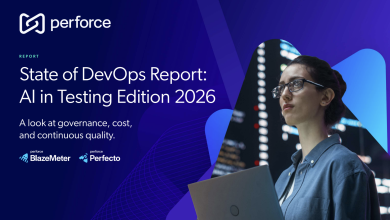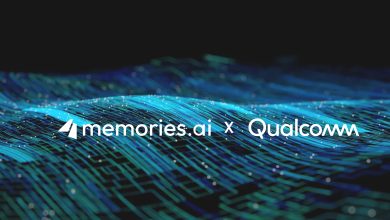
There is so much chatter around how AI promises to completely overhaul the way we work, and yet the majority of the workforce is still in the dark when it comes to productivity gains. Why? Because they can’t figure out how to use AI in their day-to-day jobs.
There are a plethora of case studies of how AI has completely overhauled industries such as sales, marketing, and social media. Great for them, but what about everyone else? The HR pro or the ops manager is sitting there thinking, “Great story, but how does this help me?” This disconnect is creating a real problem.
This problem isn’t isolated to one or two companies. According to the recent PwC Hopes & Fears Report, almost half of workers say their workload has increased significantly in the past year, and almost two-thirds say the pace of change at work has increased over the same time. This intensifying work environment underscores the urgency for practical AI application that creates tangible results when it comes to productivity.
Here’s the thing – and I speak from experience – it takes just 5-10 minutes of conversation to show someone how AI can revolutionise their specific job. The secret sauce is personalisation. It’s not like teaching maths or biology where the applications are clear-cut. Think of how we all learned to use the Microsoft Office suite – everyone needs it, but how you use it depends entirely on your role.
Scale and personalisation
Now this is particularly tricky for big enterprise that need to balance personalisation and scale. On one end, you’ve got massive online courses that treat everyone the same – think Udemy and Coursera. Boring and ineffective but, if you’re needing to ship this out to a global workforce, I can see the temptation to go for the copy-and-paste en masse approach.
On the other hand, you’ve got high-end workshops such as Accenture that cost a fortune and don’t scale. We’re talking north of $5k per head. Try doing that for 50,000 employees.
The solution is to do both. It’s AI-powered personalisation at scale. Imagine having a virtual mentor for every employee, tailored to their role, their team’s objectives, and the company’s priorities.
The real-word applications of AI
I’ve seen companies use this approach to create reusable AI assistants that can be shared across teams, breaking down silos and scaling benefits. One tech firm even managed to automate press inquiries for a new product launch, freeing up time for more strategic tasks. They built a PR Inquiry Bot, which used a detailed product knowledge base to automatically reply to various media questions and escalate any questions it couldn’t answer, significantly saving time and effort.
It’s also not just about learning AI; it’s about using AI to learn. Even though I’ve been embedded in this industry for the best part of two years now, and using this tech every day, I’m still finding new mind-blowing use cases. Just this morning, I realised I could create a GPT for every major negotiation I’m involved in, giving me an edge I never even imagined before.
The relationship between AI and learning is symbiotic, and enterprises need to be thinking about this relationship beyond something that is purely one-way traffic.
An enterprises guide to privacy
There is, of course, always the worry about data privacy. However, it has largely been exaggerated by media coverage in recent years. The landscape has significantly improved, with robust privacy policies now safeguarding user data from misuse. Interestingly, many email service providers also operate these AI models, offering an added layer of familiarity and trust.
For those still wary, options like Microsoft Azure allow for in-house API key management, ensuring data remains within company confines. Partnerships with industry giants such as Google, Microsoft, or OpenAI also come with built-in risk mitigation through carefully crafted terms and conditions. A common misconception is that these companies train on client data; in reality, commercial agreements explicitly prohibit such practices, offering reassurance to those leveraging these powerful AI tools.
The future of skills
Here’s the bottom line. The speed at which required skill sets are changing is accelerating. Enterprise needs to constantly adjust, not just react. As the world moves ever faster around us, a company’s ability to stay ahead of the curve, leverage the latest tools and skills available is going to be a key competitive edge. So much so it will likely be a C-suite role soon.
There should be constant dialogue, and a quick injection of knowledge over a two-week period can’t compete with the benefits of continuous upskilling. It is a process, not an outcome.
Emerging roles such as AI ethicists, data strategists, and automation specialists are becoming increasingly important. These roles require a blend of technical expertise and strategic thinking, emphasising the need for continuous learning and adaptation.
That’s the real challenge – and opportunity – here. It’s not just about keeping up with the latest tools (trust me, there are thousands, and 99% are useless). It’s about rewiring our brains to see what’s possible with this tech. I’ve seen companies where employees are saving an average of 4 hours a week just by experimenting with AI tools. That’s a tangible productivity boost.
More than 80% of workers who use generative AI daily expect it to make their time at work more efficient in the next 12 months, and half of all those interviewed by PwC expect it to lead to higher salaries. So, if you’re thinking about how to get the employees of your enterprise upskilled in AI, start with personalised learning. It’s not just smart; it’s the only way to win. I’ll be honest here – even though I’m on the extreme end of the early adopter curve, I struggle to keep up with the explosion of use cases that are cropping up every single day. So, imagine what it feels like for everyone else.
Get this right, and you’re not just keeping up with change – you’re driving it. Trust me, your future self will thank you.



